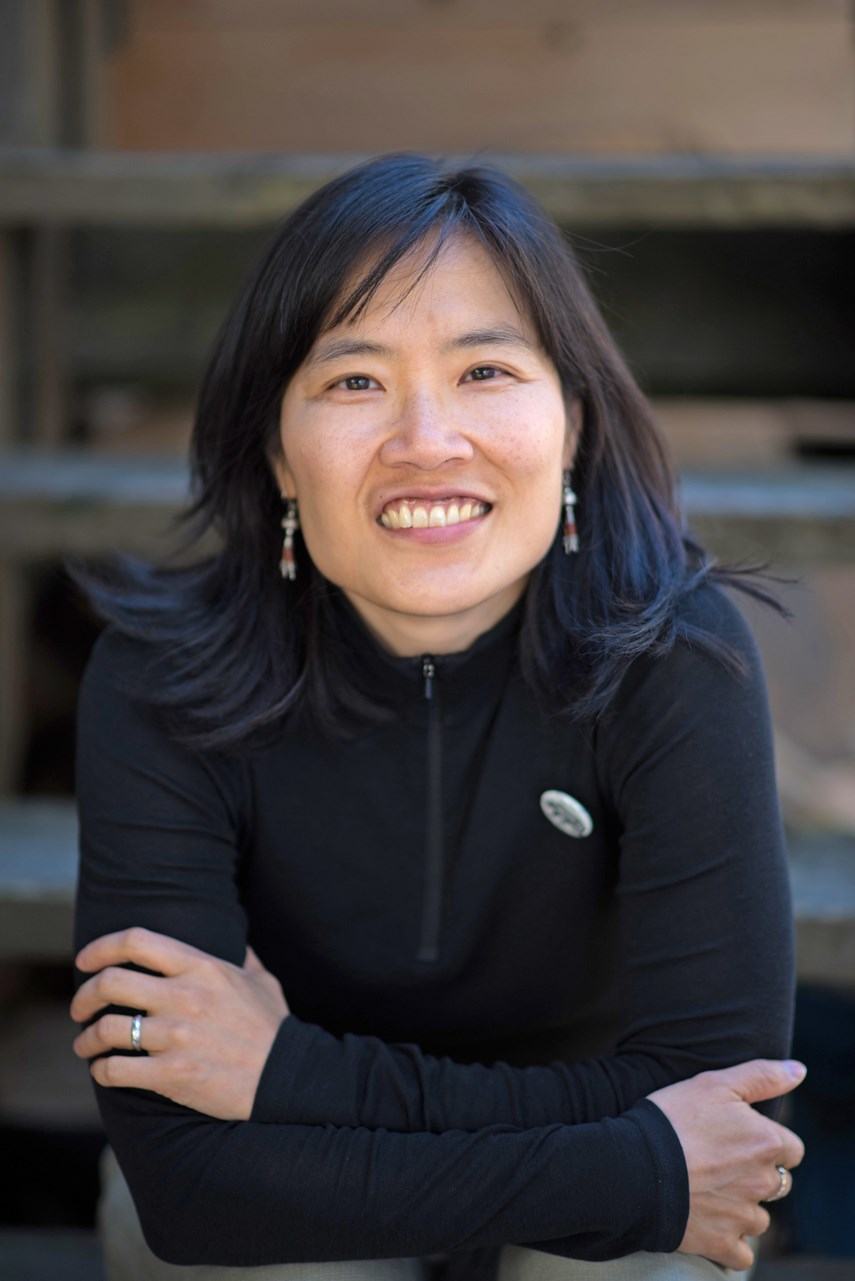A North Vancouver writer has won an annual short story contest that sought submissions from the literary-minded across B.C. and Yukon.
Noting the sparkling descriptions present in “Masquerade,” author Wiley Ho’s story about the things left said and unsaid between two old friends at a fancy dinner, contest judge Eileen Cook commended the piece as being as “intoxicating as the Champagne served at the party.”
Ho, a longtime North Shore resident, says her story deals with the various shades of addiction, whether it’s being lost to substance use, addicted to a certain lifestyle, or drawn to the workaholic’s curse of striving endlessly towards some vague notion of success.
In “Masquerade,” one of the characters has had good luck with getting clean and sober, and even more luck with becoming something akin to successful in the aftermath of addiction.
She’s had less luck when it comes to men.
When her longtime friend and former rehab pal shows up to a party she’s throwing, the two talk about her love life replete with the kinds of exchanges that only ever occur between the truly acquainted. Maybe it’s not the words themselves that matter but everything else – the casual gestures, sudden glances, or a moment’s pause left dangling before delivering a response – that conveys the real truth.
“At the end she answers in a way that could be interpreted as being very supportive, but could also be very destructive. I would like to say it’s the intersection between support and condemnation,” says Ho.
She recently learned her submission of “Masquerade” had won her the fourth annual BC-Yukon Short 2020, a short fiction contest put on by the Federation of BC writers.
Her piece will be published in the non-profit literary organization’s upcoming publication of its flagship magazine, WordWorks.
A professional editor, blogger and technical writer by trade, Ho is no stranger to the written word, though her shift towards the creative over the procedural is more recent.
“On the days that I do technical writing, I cannot also do creative writing. They’re both very separate parts of the brain,” she says. “One is heavy on the analytical and the procedural, and the other is about letting your imagination and your subconscious come out.”
However, she admits, her experience as a technical writer has helped her in many ways – for one thing, she doesn’t suffer from writer’s block. When you’re a trained technical writer you don’t have time to ponder because you’re too busy problem-solving and getting the job done, she explains.
“I will sit there and grind through for a few hours, even if I just keep three sentences. I do have that ability. And also, technical writing helps me hone in on precision – sometimes I do think it helps me get into the core of the story or find the themes,” she says.
Describing herself as a member of Generation 1.5 when it comes to her Taiwanese-Canadian background, Ho, whose family moved from Taiwan to Canada in 1980 when she was eight, says she’s in the final stages of putting together her debut collection of short stories.
In Sticky Rice and Grilled Cheese: Tales from a Taiwanese-Canadian Childhood, Ho hopes to explore the feeling that many who call more than one place home likely experience: a feeling of being caught in between two worlds, of feeling like you belong in many places as well as nowhere at all.
“The stories I’m telling are exploring that liminal space in between two cultures. I think it’s a very common phenomenon for new immigrants or immigrant families,” says Ho. “I think we all want to know where we come from, so I often feel caught in between worlds – when I go [to Taiwan] I’m too Western, when I’m here I feel like I don’t quite fit in either.”
Drawing a throughline between her upcoming book and her recent award-winning short story, they both contend with a different aspect of identity, whether that’s through the lens of class, ethnicity or someone’s place in the world, she offers.
In “Masquerade,” for example, the older woman who visits her friend throwing the party observes how the other guests appear to scoff at her disheveled manner and meagre attire. But there’s a freedom in that too.
“She just says, I’m just going to be myself.”



